
Popayán: The White City of Colombia
Nestled in the heart of the Andean region, Popayán is known as 'La Ciudad Blanca' or 'The White City' due to its stunning white colonial buildings. This city is a treasure trove of history, culture, and natural beauty. As you wander through its charming streets, you'll encounter churches, museums, and plazas that tell the story of its rich past. Popayán is also famous for its Holy Week processions, a UNESCO-recognized cultural heritage event that attracts visitors from around the world. Popayán's culinary scene is a delight for food lovers. The city is recognized by UNESCO as a City of Gastronomy, offering a variety of traditional dishes that reflect the diverse cultural influences of the region. Don't miss out on trying 'empanadas de pipián,' a local specialty made with potatoes and peanuts, or 'tamales de pipián,' a flavorful corn dough wrapped in banana leaves. Nature enthusiasts will find plenty to explore in the surrounding areas of Popayán. The nearby Puracé National Natural Park is home to the active Puracé Volcano, hot springs, and diverse wildlife. Adventurous travelers can hike the trails and experience the breathtaking landscapes of the Andean mountains. Whether you're a history buff, a foodie, or an outdoor adventurer, Popayán offers a unique and memorable experience for every traveler.
Local tips in Popayán
- Visit during Holy Week to experience the famous processions and religious events.
- Try local dishes like empanadas de pipián and tamales de pipián.
- Explore Puracé National Natural Park for hiking and wildlife spotting.
- Wear comfortable walking shoes; the cobblestone streets can be uneven.
- Learn some basic Spanish phrases; it will enhance your experience with locals.
Popayán: The White City of Colombia
Nestled in the heart of the Andean region, Popayán is known as 'La Ciudad Blanca' or 'The White City' due to its stunning white colonial buildings. This city is a treasure trove of history, culture, and natural beauty. As you wander through its charming streets, you'll encounter churches, museums, and plazas that tell the story of its rich past. Popayán is also famous for its Holy Week processions, a UNESCO-recognized cultural heritage event that attracts visitors from around the world. Popayán's culinary scene is a delight for food lovers. The city is recognized by UNESCO as a City of Gastronomy, offering a variety of traditional dishes that reflect the diverse cultural influences of the region. Don't miss out on trying 'empanadas de pipián,' a local specialty made with potatoes and peanuts, or 'tamales de pipián,' a flavorful corn dough wrapped in banana leaves. Nature enthusiasts will find plenty to explore in the surrounding areas of Popayán. The nearby Puracé National Natural Park is home to the active Puracé Volcano, hot springs, and diverse wildlife. Adventurous travelers can hike the trails and experience the breathtaking landscapes of the Andean mountains. Whether you're a history buff, a foodie, or an outdoor adventurer, Popayán offers a unique and memorable experience for every traveler.
When is the best time to go to Popayán?
Iconic landmarks you can’t miss
Parque Caldas
Explore Parque Caldas, a cultural and natural gem in the heart of Popayán, where history and vibrant local life converge.
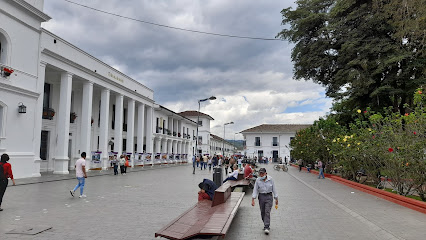
El Pueblito Patojo
Experience the vibrant culture and authentic charm of El Pueblito Patojo in Popayán, a delightful Colombian tourist attraction rich in heritage.
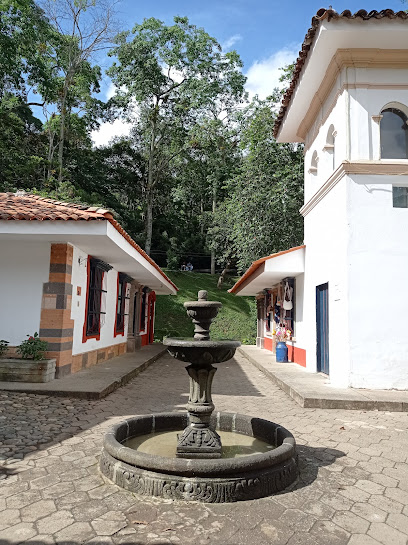
El Morro de Tulcán
Explore El Morro de Tulcán, a captivating historical landmark in Popayán, Colombia, showcasing rich heritage and stunning views.
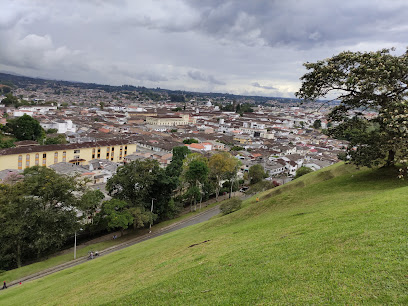
Puente del Humilladero
Explore the stunning Puente del Humilladero in Popayán, Colombia – a breathtaking bridge that embodies rich history and architectural beauty.
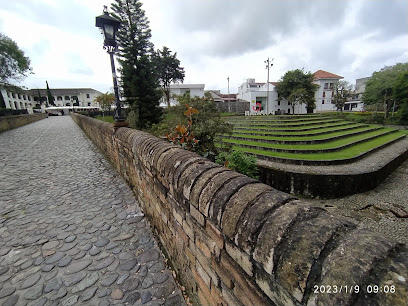
Rincón Payanés
Experience the serene beauty and vibrant culture of Rincón Payanés, the perfect park getaway in the historic city of Popayán, Cauca.
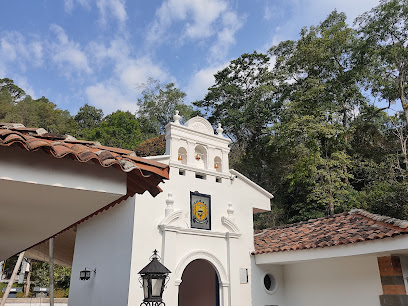
Cathedral Basilica of Our Lady of the Assumption
Discover the architectural beauty and cultural significance of the Cathedral Basilica of Our Lady of the Assumption in Popayán, Colombia's historic gem.
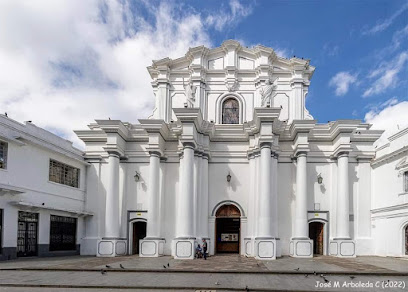
Cerro las Tres Cruces
Discover breathtaking views and natural beauty at Cerro las Tres Cruces, the ultimate hiking adventure in Popayán, Cauca, Colombia.
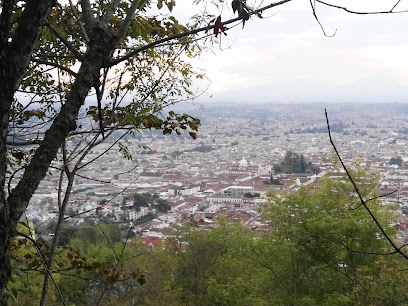
Ermita de Jesús de Nazareno
Explore the serene Ermita de Jesús de Nazareno in Popayán, a stunning Catholic church rich in history and architectural beauty, perfect for spiritual reflection.
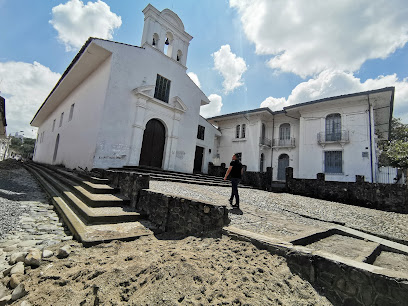
LIENZO HOSTEL
Discover the artistic charm of Popayán at Lienzo Hostel, a vibrant hub for travelers seeking cultural immersion and community connections.
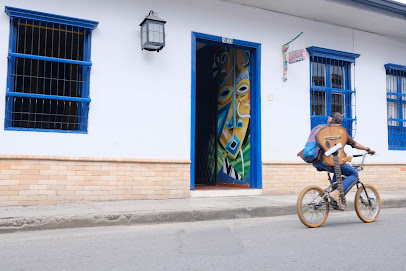
Zan Anghel
Experience the culinary artistry of Zan Anghel, where exquisite flavors meet the vibrant culture of Popayán in a delightful dining atmosphere.
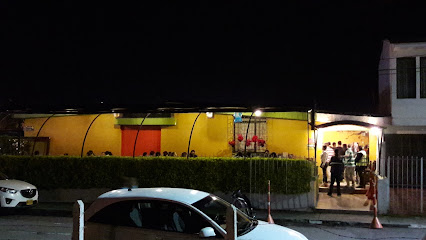
National Museum Guillermo Valencia
Explore Colombia's vibrant heritage and artistic legacy at the National Museum Guillermo Valencia in Popayán, a cultural gem for every traveler.
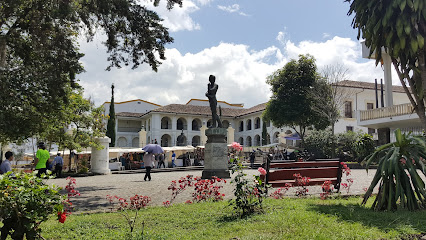
Museo Arquidiocesano de Arte Religioso
Explore the rich heritage of religious art at Museo Arquidiocesano de Arte Religioso in Popayán, Colombia, where history and culture unite.
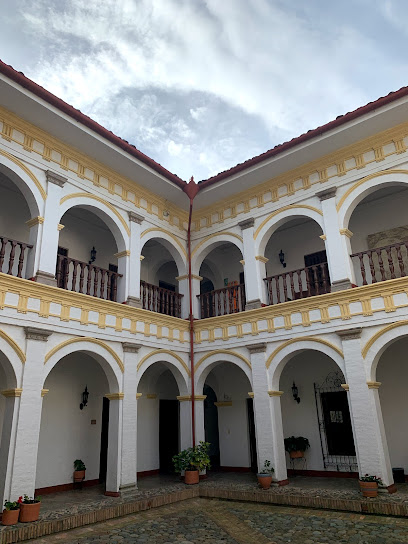
Arcada De La Herreria
Explore the serene beauty of Arcada De La Herreria, a historical park in the heart of Popayán, Colombia, perfect for relaxation and cultural experiences.
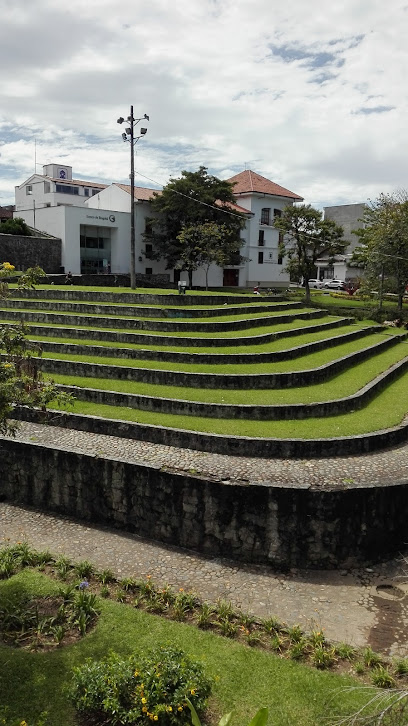
Torre del Reloj
Experience the historical allure of Torre del Reloj in Popayán, a captivating landmark that embodies Colombia's colonial heritage and vibrant culture.
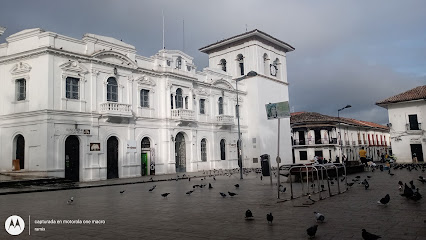
Panteón de Los Próceres
Explore Colombia's history and artistic heritage at Panteón de Los Próceres, a cultural gem in Popayán showcasing national heroes and stunning exhibits.
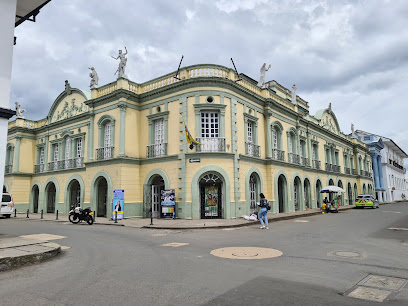
Unmissable attractions to see
Parque Caldas
Discover Parque Caldas in Popayán: a vibrant hub where history, culture, and natural beauty converge in the heart of the White City.
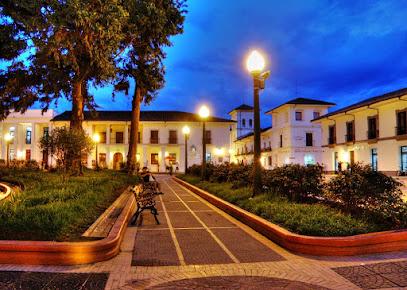
El Pueblito Patojo
Experience the charm of Popayán in miniature at El Pueblito Patojo, a vibrant replica showcasing the city's culture and architecture.
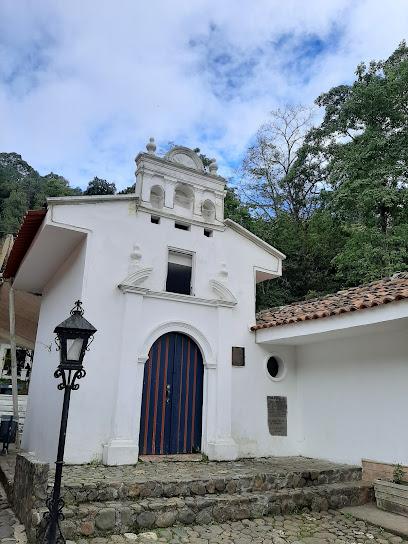
El Morro de Tulcán
Explore El Morro de Tulcán, Popayán's ancient pyramid and archaeological site, offering panoramic views and a glimpse into Colombia's pre-Columbian history.
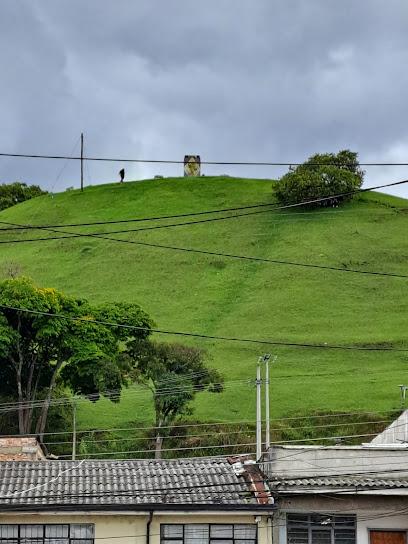
El Morro de Tulcán
Discover El Morro de Tulcán in Popayán: An ancient pyramid offering panoramic views and a glimpse into Colombia's pre-Columbian history.
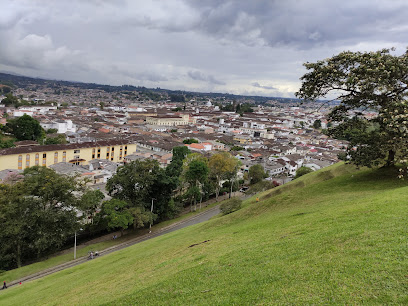
Puente del Humilladero
Discover the architectural beauty and rich history of Popayán's iconic Puente del Humilladero, a 19th-century bridge offering stunning views.
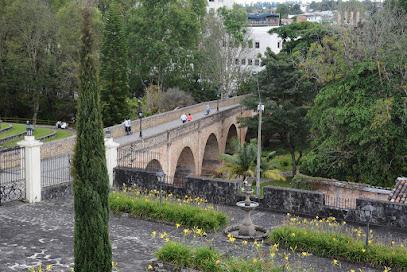
Rincón Payanés
Discover Popayán's iconic landmarks in miniature at Rincón Payanés, a charming park offering culture, crafts, and tranquility.
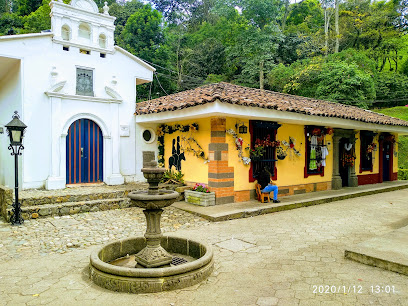
Iglesia de San Francisco
Discover Popayán's architectural gem: Iglesia de San Francisco, a stunning showcase of Baroque artistry and colonial history in Colombia's 'White City'.
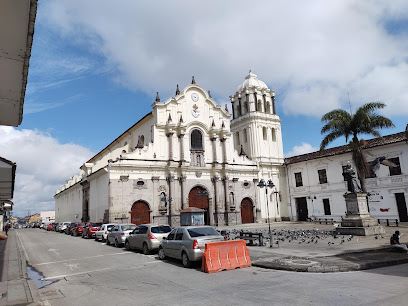
Cathedral Basilica of Our Lady of the Assumption
Discover Popayán's iconic Cathedral Basilica, a neoclassical masterpiece and symbol of the city's rich colonial and religious heritage.
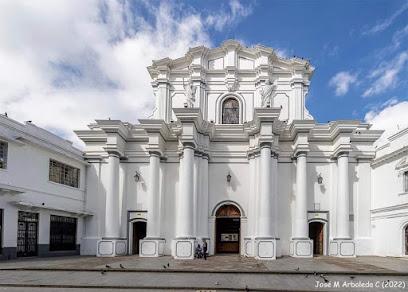
Cerro las Tres Cruces
Hike to the iconic Three Crosses overlooking Popayán for panoramic views and a spiritual experience. A must-do for visitors!
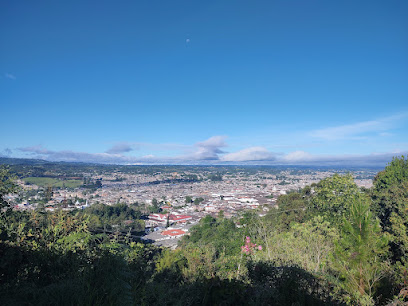
Ermita de Jesús de Nazareno
Discover Popayán's oldest church, a serene sanctuary with resilient architecture and a rich history rooted in faith and community.
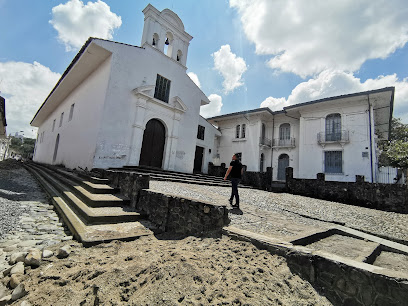
Casa museo Negret y Museo Iberoamericano de Arte Moderno de Popayán
Discover the legacy of Edgar Negret and explore modern Ibero-American art in the heart of Popayán's historic district.
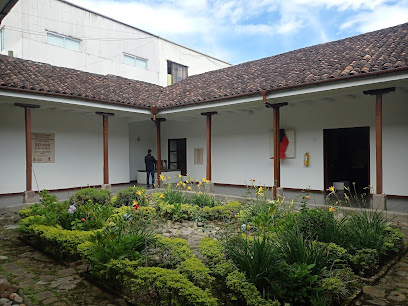
Casa Museo Guillermo León Valencia
Discover the life and legacy of a Colombian president at Casa Museo Guillermo León Valencia, a historical gem in Popayán's cultural heart.
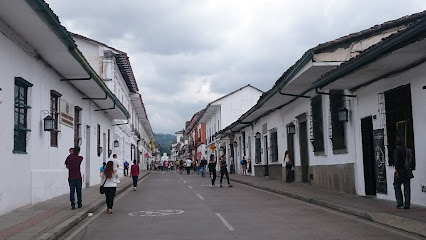
National Museum Guillermo Valencia
Discover the life and legacy of a Colombian poet and politician at his family home in Popayán's historic center.
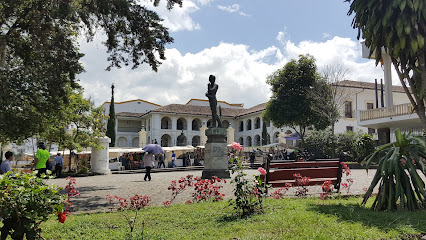
Museo Casa Mosquera
Discover the life of a Colombian president and the elegance of colonial Popayán at Museo Casa Mosquera.
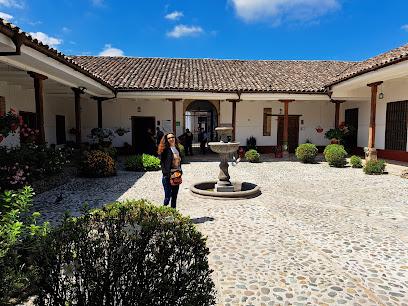
Museo Arquidiocesano de Arte Religioso
Discover centuries of religious art and history at Popayán's Museo Arquidiocesano, home to a stunning collection of paintings, sculptures, and precious metalwork.
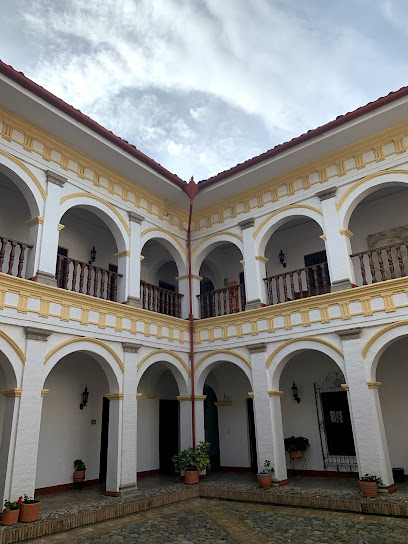
Essential places to dine
MoraCastilla
Savor authentic Colombian flavors at MoraCastilla in Popayán - where tradition meets taste in every dish.
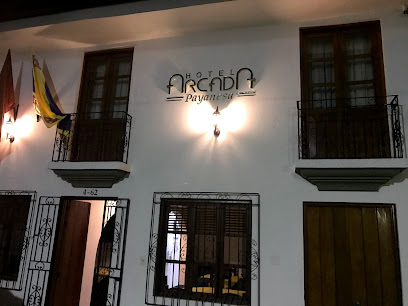
Restaurante Italiano y Pizzería
Experience authentic Italian cuisine in Popayán at Restaurante Italiano y Pizzería – where every bite is a taste of Italy.
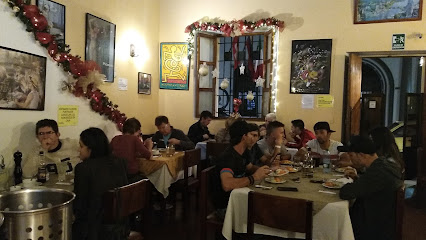
Jack & Jhonas Bar Food
Discover vibrant culinary experiences at Jack & Jhonas Bar Food in Popayán, where local flavors meet lively bar culture.
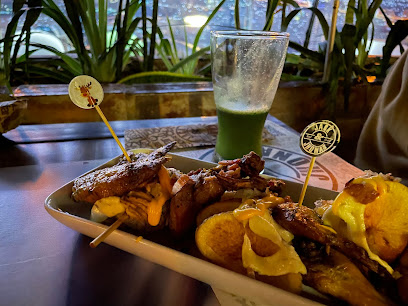
iL Gallo Restaurante
Experience authentic Colombian flavors at iL Gallo Restaurante in Popayán – where tradition meets culinary innovation.
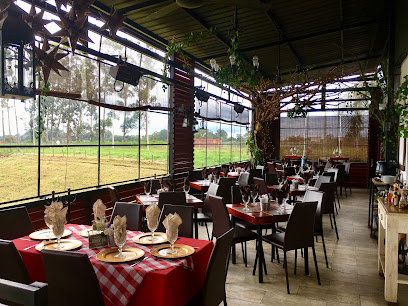
AKI MAKI SUSHI
Discover authentic Japanese flavors at Aki Maki Sushi in Popayán – where fresh ingredients meet culinary artistry.
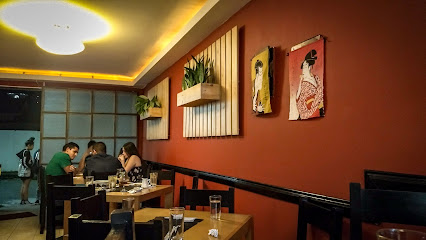
La Semilla Escondida restaurante
Experience authentic Colombian flavors at La Semilla Escondida, where local ingredients meet culinary creativity in Popayán.
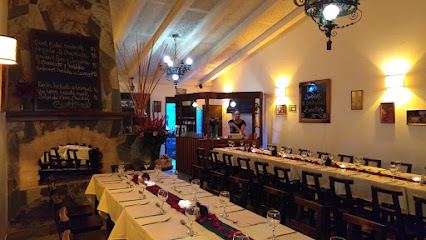
Terra Inca
Experience authentic Colombian cuisine at Terra Inca in Popayán – a gastronomic gem that captures the essence of local flavors.
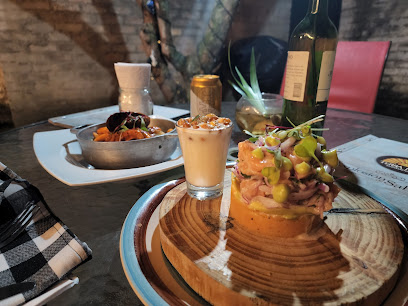
El Sabio Gastrobar
Experience the vibrant flavors of Popayán at El Sabio Gastrobar, where tradition meets modern gastronomy in an inviting setting.
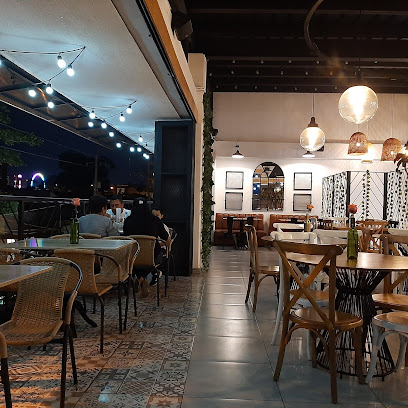
Carpe Diem
Discover authentic Colombian cuisine at Carpe Diem in Popayán – where every meal tells a story of rich cultural heritage.
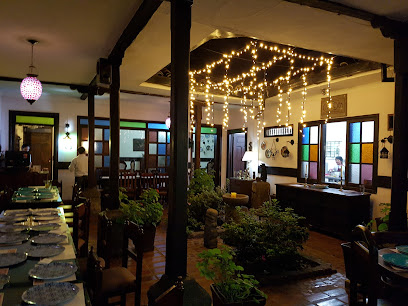
Zan Anghel
Discover the flavors of Colombia at Zan Anghel - where tradition meets modern dining in Popayán's culinary heart.
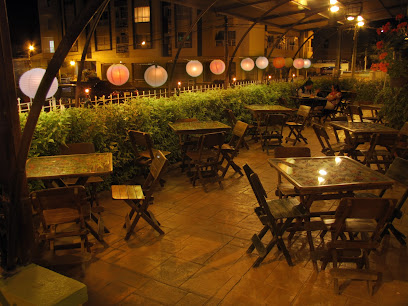
Muelle Habana
Discover Muelle Habana in Popayán: where mouthwatering grilled dishes meet vibrant Colombian culture for an unforgettable dining experience.
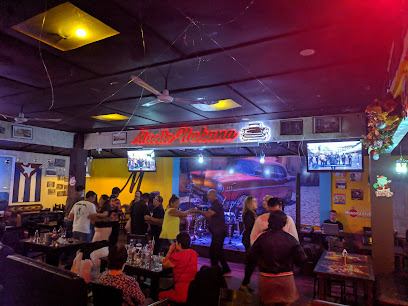
Restaurante Vegetariano Maná
Experience authentic Colombian vegetarian cuisine at Restaurante Vegetariano Maná, where fresh ingredients meet vibrant flavors in the heart of Popayán.
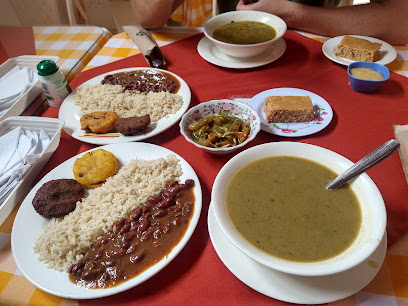
Pita
Experience the flavors of Colombia at Pita, where traditional cuisine meets modern charm in the heart of Popayán.
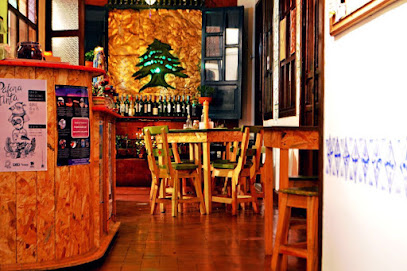
Wok House - Asian Fast Food
Discover authentic Japanese flavors at Wok House in Popayán - where fast food meets culinary tradition.
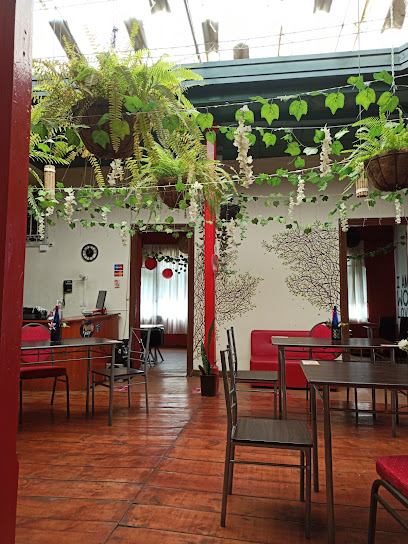
Recreation center - The Eden of my grandparents
Experience authentic Colombian flavors at The Eden of My Grandparents in Popayán – where tradition meets taste.
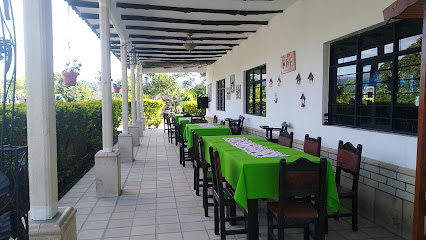
Markets, malls and hidden boutiques
Encantada
Explore Encantada in Popayán for unique fashion accessories that add a touch of Colombian flair to your travel wardrobe.
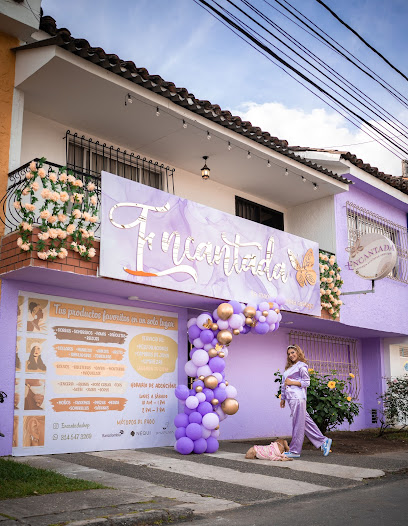
Mi Angel Tienda de regalos
Explore Mi Angel Tienda de Regalos for an unforgettable shopping experience filled with locally crafted souvenirs in the heart of Popayán.
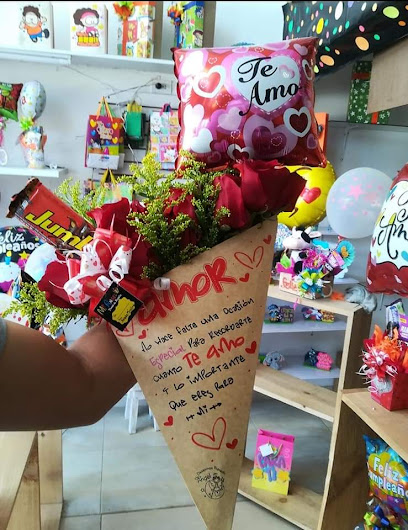
Tienda regalos Popayán
Explore the enchanting Tienda Regalos Popayán, a gift shop offering authentic Colombian crafts and unique souvenirs in the heart of Popayán.
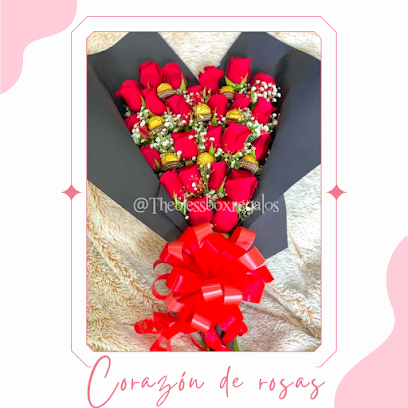
Vida Mía
Explore Vida Mía, a charming gift shop in Popayán offering unique beauty supplies, handcrafted jewelry, and local treasures to enrich your travel experience.
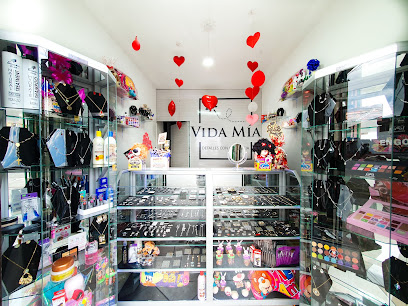
Variedades Pop
Explore Variedades Pop in Popayán for an eclectic mix of women's beachwear, formal attire, and trendy youth clothing, perfect for every occasion.
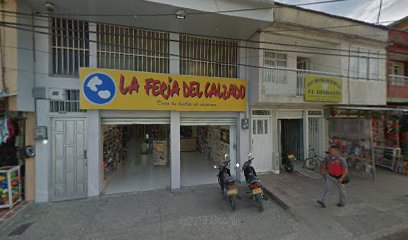
Luminiqa Shop
Discover unique women's and youth clothing at Luminiqa Shop in Popayán, where local craftsmanship meets contemporary fashion.

encantosboutique27
Explore the heart of Popayán at Encantos Boutique, where local craftsmanship meets unique style in a charming shopping experience.

Moda y Estilo Boutique
Explore trendy attire at Moda y Estilo Boutique in Popayán, where local fashion meets contemporary style.
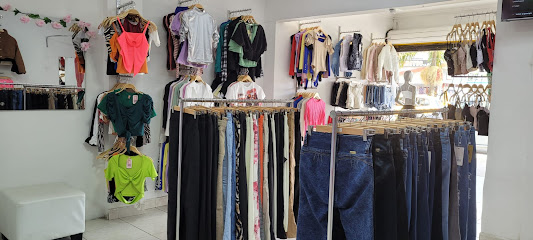
BlessCard Popayán
Discover the unique blend of local fashion and culture at BlessCard Popayán, your one-stop shop for clothing, accessories, and more.

Filomena Tienda
Uncover unique Colombian souvenirs at Filomena Tienda, a local gift shop in the heart of Popayán, showcasing artisanal crafts and cultural treasures.
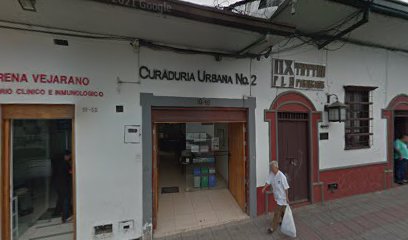
The Colors Shop
Explore vibrant women's fashion at The Colors Shop in Popayán, where local style meets unique flair in a delightful shopping experience.
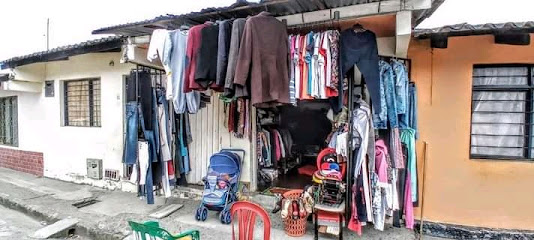
Ángeles Boutique Popayán
Explore the charm of Ángeles Boutique Popayán, where local craftsmanship meets contemporary style in the heart of Colombia.
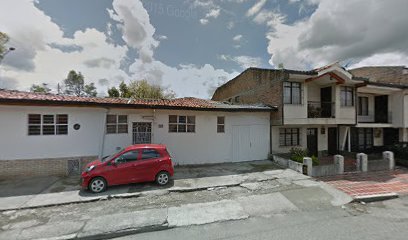
Rincón de los Detalles
Explore Rincón de los Detalles in Popayán for exquisite gifts and authentic Colombian crafts that embody the spirit and culture of the region.
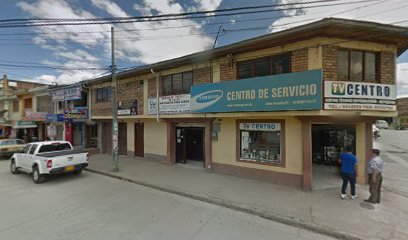
Bless Boutique
Discover unique women's fashion at Bless Boutique in Popayán, where local style meets contemporary elegance.

MIA Boutique Popayán
Explore MIA Boutique Popayán, where local fashion meets unique style in a charming shopping experience.
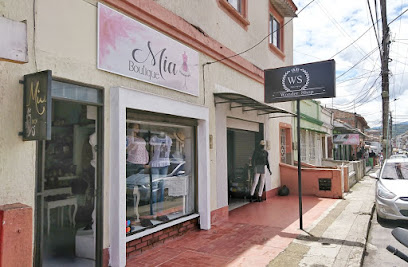
Essential bars & hidden hideouts
Blessed Heart Coffee Bar
Experience the inviting ambiance and exceptional drinks at Blessed Heart Coffee Bar in the heart of Popayán, a must-visit for every traveler.
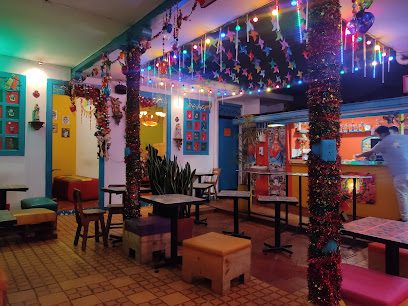
Bar El Sotareño
Discover the vibrant atmosphere of Bar El Sotareño in Popayán, where local flavors and lively entertainment come together in a historic setting.
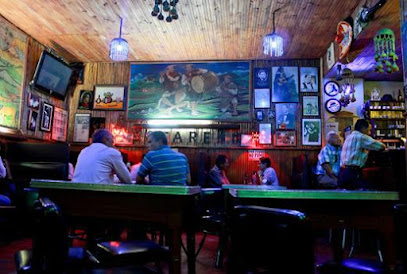
La Iguana Afro Video Bar
Dive into the rhythmic vibes of La Iguana Afro Video Bar, a must-visit nightlife gem in Popayán, renowned for its Afro-Caribbean beats and vibrant atmosphere.
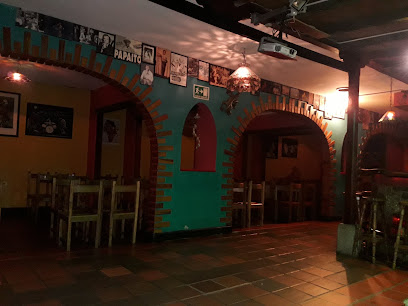
El Cachaco
Experience the vibrant nightlife at El Cachaco, a lively bar in Popayán offering delicious cocktails and a lively atmosphere perfect for socializing.
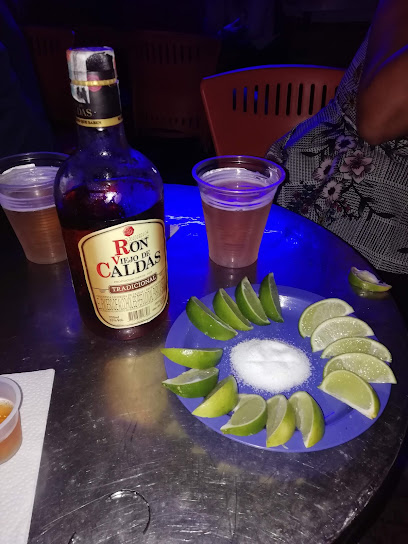
Bar Barriles De Alcalá
Discover the lively nightlife of Popayán at Bar Barriles De Alcalá, where friendly vibes and great drinks await every visitor.
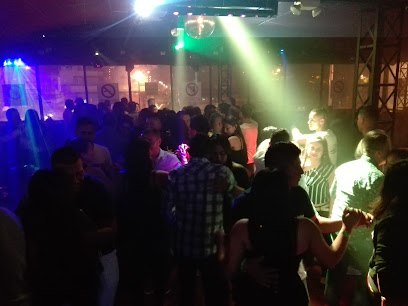
Alhambra
Discover the lively atmosphere of Alhambra, a bar in Popayán, offering affordable drinks and a taste of local nightlife in a historical setting.
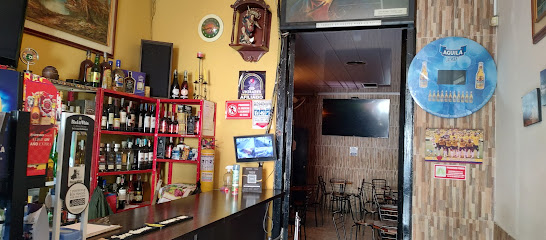
Avenida BAR - Estadio
Experience the vibrant nightlife of Popayán at Avenida BAR, where great drinks and an electric atmosphere await you.
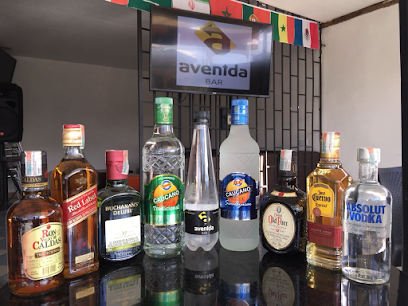
Paradise Café Rock
Experience the vibrant nightlife at Paradise Café Rock, where local culture meets a lively pub atmosphere in the heart of Popayán.
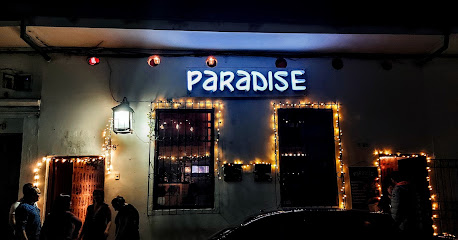
Utopia Cafe Bar
Experience the vibrant nightlife of Popayán at Utopia Cafe Bar, where lively ambiance meets local flavor in a captivating setting.
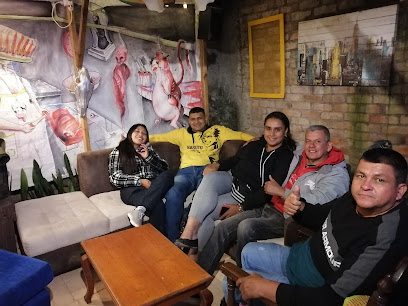
urban cocktails
Discover the lively atmosphere and expertly crafted cocktails at Urban Cocktails in Popayán, the perfect spot for nightlife enthusiasts.
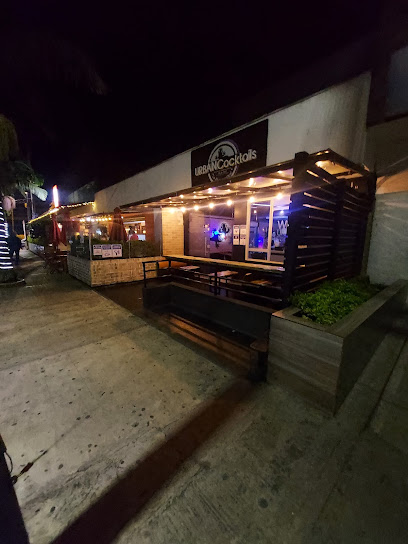
La Trocha Cafe-Bar
Experience the vibrant nightlife of Popayán at La Trocha Cafe-Bar, where local flavors meet a lively atmosphere.
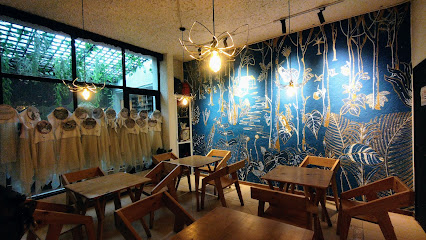
Shorty shots
Discover the vibrant nightlife of Popayán at Shorty Shots, where friendly service and a diverse drink menu await you in a lively atmosphere.
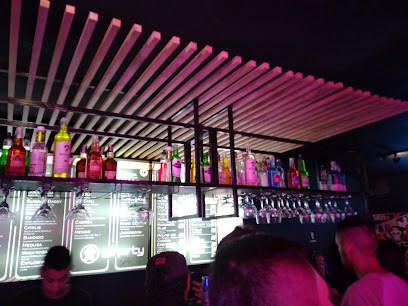
CALIFORNIA BAR
Discover the lively California Bar in Popayán, where local culture meets vibrant nightlife, perfect for unwinding after a day of exploration.
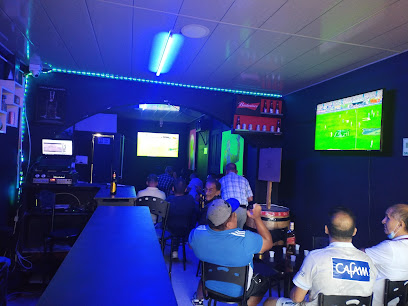
Tequila Disco-Bar
Experience the vibrant nightlife at Tequila Disco-Bar in Popayán, where lively music and tantalizing cocktails await.
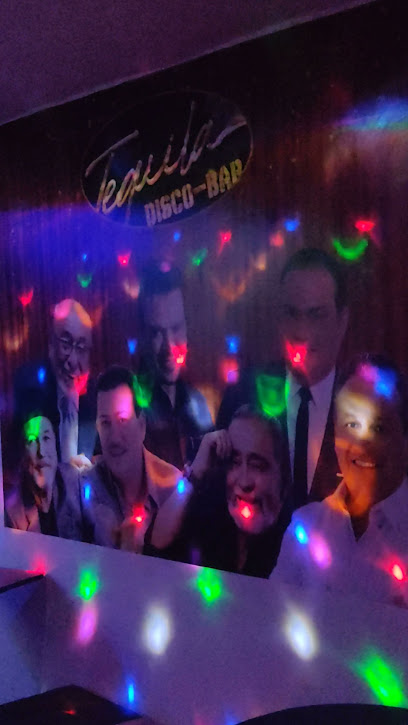
Clandestinos Bar
Experience the vibrant nightlife and eclectic flavors at Clandestinos Bar in Santa Teresa, Popayán, perfect for an unforgettable evening out.
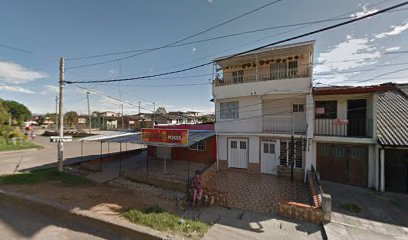
Local Phrases
-
- HelloHola
[oh-la] - GoodbyeAdiós
[ah-dee-ohs] - YesSí
[see] - NoNo
[no] - Please/You're welcomePor favor/De nada
[por fah-vor/de nah-dah] - Thank youGracias
[grah-see-ahs] - Excuse me/SorryPerdón/Lo siento
[pair-dohn/loh see-en-toh] - How are you?¿Cómo estás?
[koh-moh ehs-tahs] - Fine. And you?Bien. ¿Y tú?
[bee-ehn. ee too] - Do you speak English?¿Hablas inglés?
[ah-blahs een-glays] - I don't understandNo entiendo
[noh ehn-tee-ehn-doh]
- HelloHola
-
- I'd like to see the menu, pleaseMe gustaría ver el menú, por favor
[may goo-stah-ree-ah ver el meh-noo, por fah-vor] - I don't eat meatNo como carne
[noh koh-moh kahr-neh] - Cheers!¡Salud!
[sah-loohd] - I would like to pay, pleaseMe gustaría pagar, por favor
[may goo-stah-ree-ah pah-gar, por fah-vor]
- I'd like to see the menu, pleaseMe gustaría ver el menú, por favor
-
- Help!¡Ayuda!
[ah-yoo-dah] - Go away!¡Vete!
[veh-teh] - Call the Police!¡Llama a la policía!
[yah-mah ah lah poh-lee-see-ah] - Call a doctor!¡Llama a un médico!
[yah-mah ah oon meh-dee-koh] - I'm lostEstoy perdido/a
[ehs-toy pair-dee-doh/ah] - I'm illEstoy enfermo/a
[ehs-toy ehn-fehr-moh/ah]
- Help!¡Ayuda!
-
- I'd like to buy...Me gustaría comprar...
[may goo-stah-ree-ah kohm-prahr...] - I'm just lookingSolo estoy mirando
[soh-loh ehs-toy mee-rahn-doh] - How much is it?¿Cuánto cuesta?
[kwan-toh kwehs-tah] - That's too expensiveEso es demasiado caro
[eh-soh ehs deh-mah-see-ah-doh kah-roh] - Can you lower the price?¿Puedes bajar el precio?
[pweh-dehs bah-har el pree-seh-oh]
- I'd like to buy...Me gustaría comprar...
-
- What time is it?¿Qué hora es?
[keh oh-rah ehs] - It's one o'clockEs la una
[ehs lah oo-nah] - Half past (10)Media (diez)
[meh-dee-ah (dee-ehs)] - MorningMañana
[mah-nyah-nah] - AfternoonTarde
[tahr-deh] - EveningNoche
[noh-cheh] - YesterdayAyer
[ah-yehr] - TodayHoy
[oy] - TomorrowMañana
[mah-nyah-nah] - 1Uno
[oo-noh] - 2Dos
[dohs] - 3Tres
[trehs] - 4Cuatro
[kwa-troh] - 5Cinco
[seen-koh] - 6Seis
[says] - 7Siete
[syeh-teh] - 8Ocho
[oh-choh] - 9Nueve
[nweh-veh] - 10Diez
[dee-ehs]
- What time is it?¿Qué hora es?
-
- Where's a/the...?¿Dónde está el/la...?
[dohn-deh ehs-tah el/lah] - What's the address?¿Cuál es la dirección?
[kwal ehs lah dee-rehk-syon] - Can you show me (on the map)?¿Puedes mostrarme (en el mapa)?
[pweh-dehs mohs-trar-meh (en el mah-pah)] - When's the next (bus)?¿Cuándo es el próximo (autobús)?
[kwan-doh ehs el proh-ksee-moh (ow-toh-boos)] - A ticket (to ....)Un boleto (a ...)
[oon boh-leh-toh (ah ...)]
- Where's a/the...?¿Dónde está el/la...?
History of Popayán
-
Popayán was founded on January 13, 1537, by the Spanish conquistador Sebastián de Belalcázar. Located in the Valley of Pubenza, the city quickly became an important colonial settlement due to its strategic location between Quito and Cartagena. The early years of Popayán were marked by the establishment of religious institutions and the construction of colonial architecture, which still stands as a testament to its rich history.
-
During the colonial period, Popayán thrived as a center of commerce and administration. The city's wealth was largely derived from the gold mines of the Chocó region and the fertile lands surrounding it. Prominent families and the Catholic Church played significant roles in the city's development, funding the construction of grand churches, monasteries, and colonial mansions that still adorn the city’s historic center.
-
Popayán was a key player in Colombia's fight for independence from Spanish rule. Many prominent figures, including Francisco José de Caldas and Camilo Torres Tenorio, hailed from Popayán and contributed to the revolutionary cause. Despite facing conflicts and invasions, the city remained a bastion of resistance and intellectual fervor during the early 19th century.
-
Popayán has been devastated by several major earthquakes throughout its history, notably in 1736, 1983, and 1999. Each time, the city has demonstrated remarkable resilience and commitment to preserving its heritage. The 1983 earthquake, in particular, caused extensive damage, but a concerted effort to restore and rebuild led to the preservation of many historic buildings and the modernization of infrastructure.
-
Popayán is renowned for its cultural and religious significance, particularly its Semana Santa (Holy Week) celebrations, which are among the most famous in Latin America. The city's streets come alive with processions, traditional music, and religious ceremonies, attracting visitors from around the world. Popayán is also known as the 'White City' due to its well-preserved white colonial buildings.
-
Popayán was designated a UNESCO Creative City of Gastronomy in 2005, recognizing its rich culinary traditions. The city is famous for its diverse and flavorful dishes, such as empanadas de pipián, tamales de pipián, and sopa de carantanta. Local markets and restaurants offer a taste of Popayán's unique culinary heritage, blending indigenous, Spanish, and African influences.
-
Today, Popayán is a vibrant city that balances its historical legacy with modern developments. The city is home to several universities, cultural institutions, and a growing tourism industry. Popayán continues to celebrate its rich traditions while embracing new opportunities for growth and innovation, making it a fascinating destination for travelers interested in history, culture, and gastronomy.
Popayán Essentials
-
Popayán is accessible via multiple transportation options. The nearest airport is Guillermo León Valencia Airport, located just 2 kilometers from the city center. Regular flights connect Popayán to Bogotá, the capital of Colombia. For those traveling by road, Popayán is well-connected by bus services from major cities like Cali and Bogotá. The bus journey from Cali takes approximately 3 hours, while from Bogotá, it takes around 10 hours. If you prefer driving, the Pan-American Highway provides direct access to Popayán.
-
Getting around Popayán is convenient with various transportation options. Public buses and minibuses (colectivos) are the primary means of local transport and cover most areas of the city. Taxis are also readily available and are a reliable way to get around; make sure to agree on the fare before starting your journey. For a more scenic and leisurely tour, consider renting a bicycle or taking guided walking tours, especially in the historic center.
-
The official currency in Popayán is the Colombian Peso (COP). Credit and debit cards are widely accepted in hotels, restaurants, and larger stores. However, it is advisable to carry some cash, especially when visiting smaller shops or local markets. ATMs are plentiful in the city center, but always ensure to withdraw enough cash before heading to more remote areas.
-
Popayán is generally considered safe for tourists, but like any other destination, it is essential to take standard precautions. Avoid walking alone at night in unfamiliar areas and be cautious of your belongings in crowded places. Areas such as the outskirts of the city and certain neighborhoods like La Esmeralda are known for higher crime rates and should be avoided, especially after dark. Always use official taxis and avoid unlicensed cabs.
-
In case of emergency, dial 123 for immediate assistance. Popayán has several hospitals and clinics, including the Hospital Universitario San José, which provides comprehensive medical services. Pharmacies are abundant and offer over-the-counter medications. It is highly recommended to have travel insurance that covers medical emergencies. For police assistance, you can visit the local police stations located within the city.
-
Fashion: Do dress modestly, especially when visiting religious sites. Avoid wearing revealing clothing. Religion: Do respect local customs, traditions, and religious practices. Always cover your head when entering churches, and be silent and respectful during services. Public Transport: Do be courteous and give up your seat to elderly passengers. Don’t eat or drink on public transport. Greetings: Do greet people with a handshake or a kiss on the cheek, which is common among friends. Eating & Drinking: Do try local foods and drinks like empanadas de pipián and champús. Don’t refuse hospitality, as it is considered rude.
-
To experience Popayán like a local, visit the bustling local markets such as Mercado Bolívar, where you can find fresh produce, local crafts, and traditional foods. Engage with locals, as they are often eager to share stories and recommend hidden gems. Don’t miss the Semana Santa (Holy Week) celebrations, a significant cultural event in Popayán. For a unique experience, take a stroll through the colonial streets and visit the many historic churches and museums that highlight the city’s rich history.
Trending Landmark in Popayán
-
Parque Caldas
-
El Pueblito Patojo
-
El Morro de Tulcán
-
Puente del Humilladero
-
Rincón Payanés
-
Cathedral Basilica of Our Lady of the Assumption
-
Cerro las Tres Cruces
-
Ermita de Jesús de Nazareno
-
LIENZO HOSTEL
-
Zan Anghel
-
National Museum Guillermo Valencia
-
Museo Arquidiocesano de Arte Religioso
-
Arcada De La Herreria
-
Torre del Reloj
-
Panteón de Los Próceres
Nearby Cities to Popayán
-
Things To Do in Cali
-
Things To Do in Pasto
-
Things To Do in Neiva
-
Things To Do in Armenia
-
Things To Do in Ibagué
-
Things To Do in Pereira
-
Things To Do in Ibarra
-
Things To Do in Otavalo
-
Things To Do in Manizales
-
Things To Do in Quito
-
Things To Do in Mindo
-
Things To Do in Bogotá
-
Things To Do in Villavicencio
-
Things To Do in Tena
-
Things To Do in Medellín













